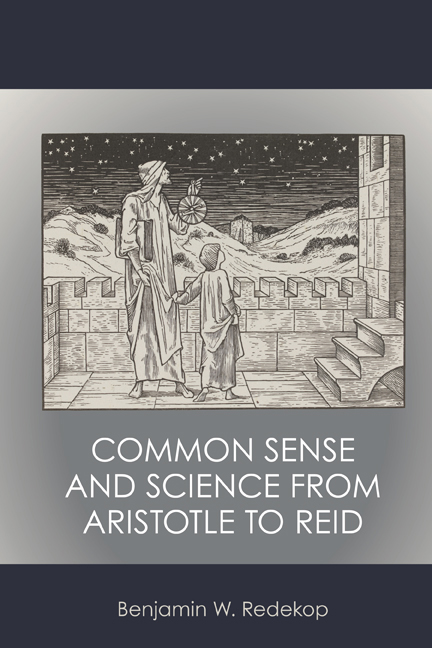Book contents
- Frontmatter
- Contents
- Acknowledgments
- Introduction
- 1 Common Sense and Scientific Thinking before Copernicus
- 2 The Challenge of Modern Science and Philosophy
- 3 Common Notions, Sens Commun: Herbert of Cherbury and Renè Descartes
- 4 Hobbes, Locke, and Innatist Responses to Skepticism and Materialism
- 5 Common Sense in Early Eighteenth-Century Thought
- 6 Common Sense and Moral Sense: Buffier, Hutcheson, and Butler
- 7 Common Sense and the Science of Man in Enlightenment Scotland: Turnbull and Kames
- 8 Common Sense, Science, and the Public Sphere: The Philosophy of Thomas Reid
- Epilogue
- Notes
- Index
4 - Hobbes, Locke, and Innatist Responses to Skepticism and Materialism
Published online by Cambridge University Press: 07 November 2020
- Frontmatter
- Contents
- Acknowledgments
- Introduction
- 1 Common Sense and Scientific Thinking before Copernicus
- 2 The Challenge of Modern Science and Philosophy
- 3 Common Notions, Sens Commun: Herbert of Cherbury and Renè Descartes
- 4 Hobbes, Locke, and Innatist Responses to Skepticism and Materialism
- 5 Common Sense in Early Eighteenth-Century Thought
- 6 Common Sense and Moral Sense: Buffier, Hutcheson, and Butler
- 7 Common Sense and the Science of Man in Enlightenment Scotland: Turnbull and Kames
- 8 Common Sense, Science, and the Public Sphere: The Philosophy of Thomas Reid
- Epilogue
- Notes
- Index
Summary
There are a variety of ways in which one can view the thought of Thomas Hobbes (1588–1679), but for our purposes he was important because he advanced a thoroughly mechanistic and materialistic view of human nature, informed by the ideas of Descartes, Galileo, and others, that left little room for ineffable “spiritual” entities, free will, and innate first principles of mind that provide us with unmediated knowledge of an independent reality. Hobbes saw “man” as a purely material being driven by his passions and the need to survive (and hence as essentially solitary and selfish), and the world at large as being entirely constituted by matter in constant motion.
For Hobbes, “There is no conception in a man's mind, which hath not at first, totally, or by parts, been begotten upon the organs of Sense.” Sense is a “seeming” or “fancy” caused by an external motion or pressure on one of our organs, which gets communicated via nerves “and other strings” to the brain and heart and then produces a resistance or counterpressure that is directed outward to the original cause. In step with the emerging scientific distinction between primary and secondary qualities, Hobbes asserts that colors and sounds and other such qualities are not in the bodies that produce them but rather in us; their external cause is only matter in motion. The mind itself contains little, however, before experience. “There is no other act of man's mind, that I can remember, naturally planted in him, so, as to need no other thing, to the exercise of it, but to be born a man, and live with the use of his five Senses.” All other faculties that seem proper to man “are acquired, and encreased by study and industry; and of most men learned by instruction, and discipline […] For besides Sense, and Thoughts, and the Trayne of Thoughts, the mind of man has no other motion.”
Belief and knowledge are hence based on our physical experience of the world. Science consists in our ability to order our sense experiences through the proper use of language: scientific knowledge is at root “knowledge of all the Consequences of names appertaining to the subject at hand.”
- Type
- Chapter
- Information
- Common Sense and Science from Aristotle to Reid , pp. 47 - 60Publisher: Anthem PressPrint publication year: 2020



